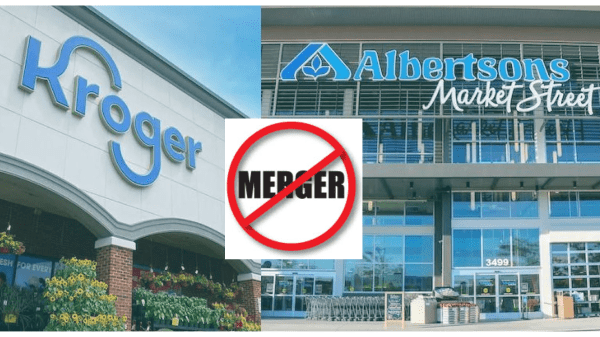February 26, 2024 Washington, D.C. – The National Grocers Association (NGA) BB #:163424 today issued the following response to the Federal Trade Commission’s decision to challenge the merger between Kroger and Albertsons:
“Every day, America’s local independent supermarkets face economic challenges due to the influence of massive power buyer chains who use their leverage over suppliers at the expense of smaller rivals in the marketplace,” said Greg Ferrara, NGA president and CEO. “NGA appreciates the FTC’s commitment to preserving competition in the grocery sector.”
The challenge underscores the importance of mitigating substantial buyer power wielded by the nation’s largest supermarket chains, which have been unchecked by federal regulators for decades. According to one study, four big food retailers now control 69 percent of the nation’s supermarket shelves, utilizing this dominance to exert pressure on suppliers, farmers and ranchers resulting in deals that shift higher prices onto smaller stores.
This corporate marriage of two supermarket giants is engineered to enhance the largest conventional grocery chain’s leverage over suppliers at the expense of smaller rivals and grocery shoppers.
The risks associated with excessive buyer power have been on full display since Covid-era supply chain disruptions and the emergence of historic food price inflation. In the early part of the pandemic, dominant chains leveraged their influence to coercively squeeze food suppliers to meet specific trade demands.
As the big box stores remained stocked, consumers in urban and rural areas who largely shop at independent grocery stores bore the brunt of these marketplace abuses and in many cases were left without household necessities.
Independent grocers and their customers have also faced higher inflationary price increases as dominant national grocers used their dominant position to force higher inflationary burdens on their smaller competitors.
“NGA appreciates the FTC’s commitment to a competitive grocery industry, and we look forward to the FTC taking further action to level the playing field, including enforcing antitrust laws like the Robinson-Patman Act that prohibit economic discrimination against independent grocers and their customers,” said Chris Jones, NGA’s chief government relations officer and counsel.
About NGA
NGA is the national trade association representing the retail and wholesale community grocers that comprise the independent sector of the food distribution industry. An independent retailer is a privately owned or controlled food retail company operating a variety of formats. The independent grocery sector is accountable for about 1.2 percent of the nation’s overall economy and is responsible for generating more than $250 billion in sales, 1.1 million jobs, $39 billion in wages and $36 billion in taxes. NGA members include retail and wholesale grocers located in every congressional district across the country, as well as state grocers’ associations, manufacturers and service suppliers. For more information about NGA, visit www.nationalgrocers.org.
601 Pennsylvania Ave. NW
Suite 375N
Washington, DC 20004
Contact: NGA Communications Office
202-938-2584
communications@nationalgrocers.org



